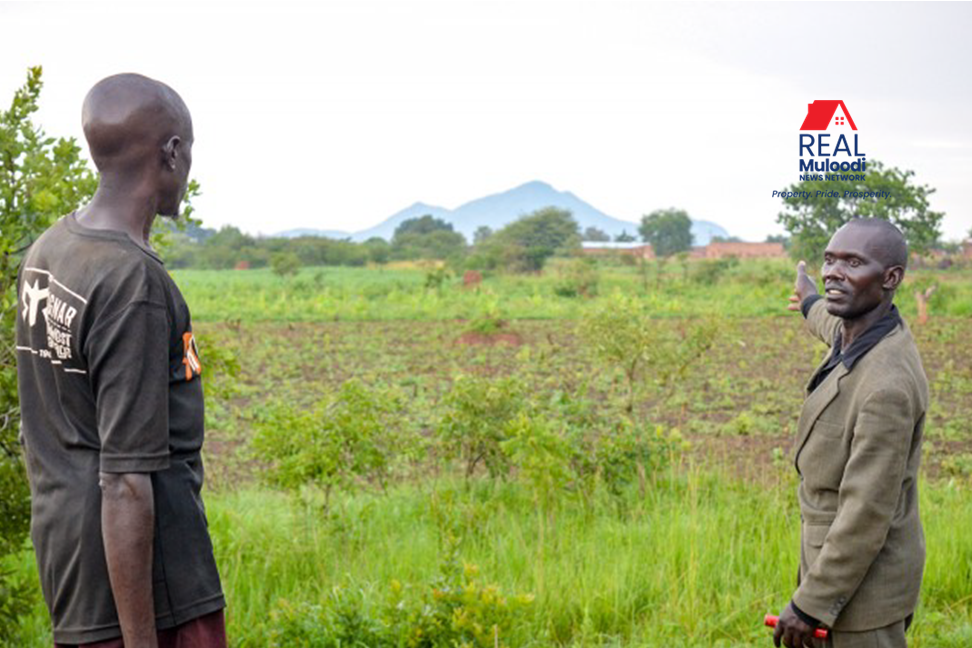UGANDA, Kampala | Real Muloodi News | The government, through the Equal Opportunities Commission (EOC), has initiated a comprehensive study on land ownership disparities in 20 districts across the country.
The primary objective of this investigation, which commenced on Monday 15th May 2023, is to assess access to land as a factor of production among vulnerable groups, with a particular focus on women and youth in the selected districts.
Additionally, the study aims to shed light on other marginalised groups, such as persons with disabilities, ethnic minorities, and older individuals, who face barriers to land ownership.
Bashiru Lukungu, the Head of Research at EOC, emphasised that the findings from this probe will form necessary changes in land policies to benefit all citizens in the country.
“In accordance with Section 14, Sub-section (1) of the Equal Opportunities Commission Act, 2007, it is the responsibility of the EOC to conduct research studies across all sectors of Uganda’s economy to ensure compliance with equal opportunities and affirmative action,” stated Mr Lukungu.
Previous household surveys conducted by the Uganda Bureau of Statistics (UBOS) have revealed that approximately 50% of Ugandan household wealth is tied to the land, which also provides the majority of employment opportunities in the country.
Unfortunately, many landowners lack official land titles that would guarantee their security of tenure.
Yusuf Muziranza, the spokesperson for the EOC, emphasised that land is a critical resource for both women and men in Uganda, serving multiple purposes and playing a vital role in people’s livelihoods.
However, vulnerable groups, especially women, often lack secure land rights, including equal rights to inheritance, despite their significant contributions to agricultural production.
To address these challenges, the EOC is mandated to eliminate discrimination and inequalities against individuals or groups.
The Commission identifies the nature of the land tenure system and cultural norms as key factors contributing to land disparities in the country over the years.
Such disparities have led to inequalities in land utilisation, control, and ownership, disproportionately affecting vulnerable populations.
“By securing land rights, these marginalized groups can improve food security, education, health, and economic development for themselves, their families, and the community,” Mr Lukungu emphasised.
The investigation, which is scheduled to last for 11 working days, will cover various districts, including Mubende, Nakaseke, Mukono, Masaka, Mayuge, Tororo, Kween Katakwi, Kikuube, Kakumiro, Kibaale, Hoima, Amuru, Agago, Pader, and Nwoya.
Throughout the country, land disputes resulting in rampant evictions have become a pressing issue. Families in Luweero, Nakaseke, Kayunga, Nakasongola, and Kiboga districts have been evicted from lands they have occupied for over 60 years, in violation of legal frameworks and laws that should have guaranteed their land ownership.
This situation is not unique to these areas but is also prevalent in central Buganda, including the Kampala Metropolitan area.
Local leaders and residents from various regions in Buganda have repeatedly accused certain government officials of siding with individuals responsible for land evictions.
Following his sixth re-election, President Museveni vowed to adopt a zero-tolerance approach to land evictions and promised to resolve the underlying issues triggering conflicts, evictions, and hindering agricultural production.
Presently, Uganda recognises four modes of land ownership or tenure: mailo, freehold, leasehold, and customary. These diverse systems of land tenure play a crucial role in shaping land ownership and usage across the country.
READ MORE LIKE THIS:
Many Kabale District Women Unaware of Their Land Ownership Rights



